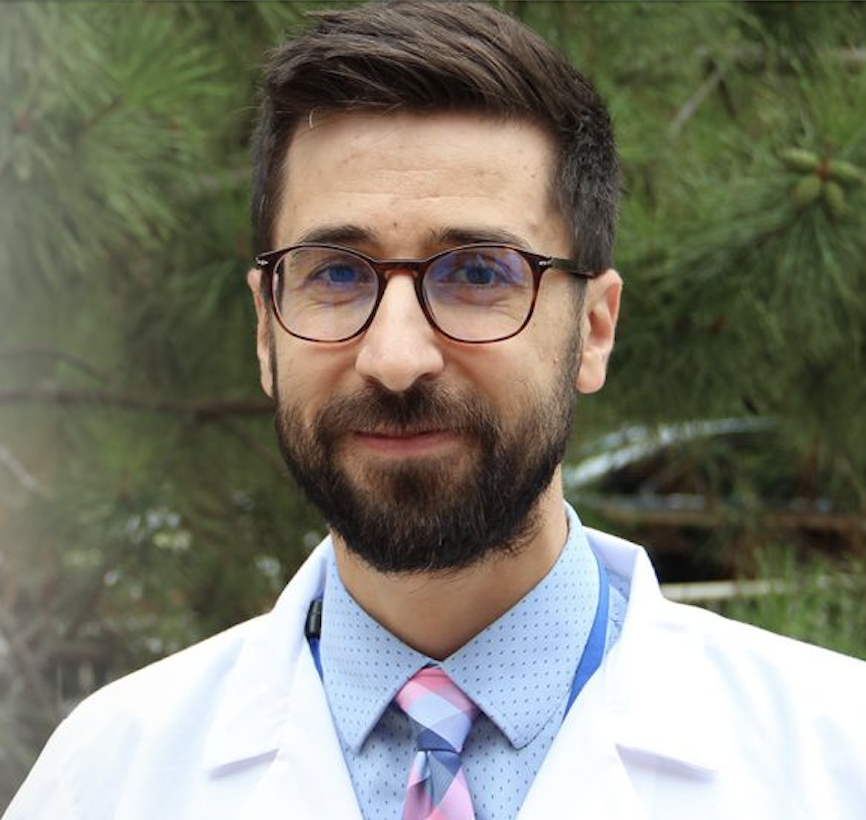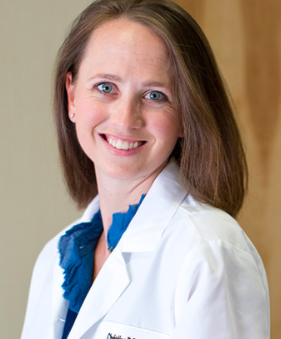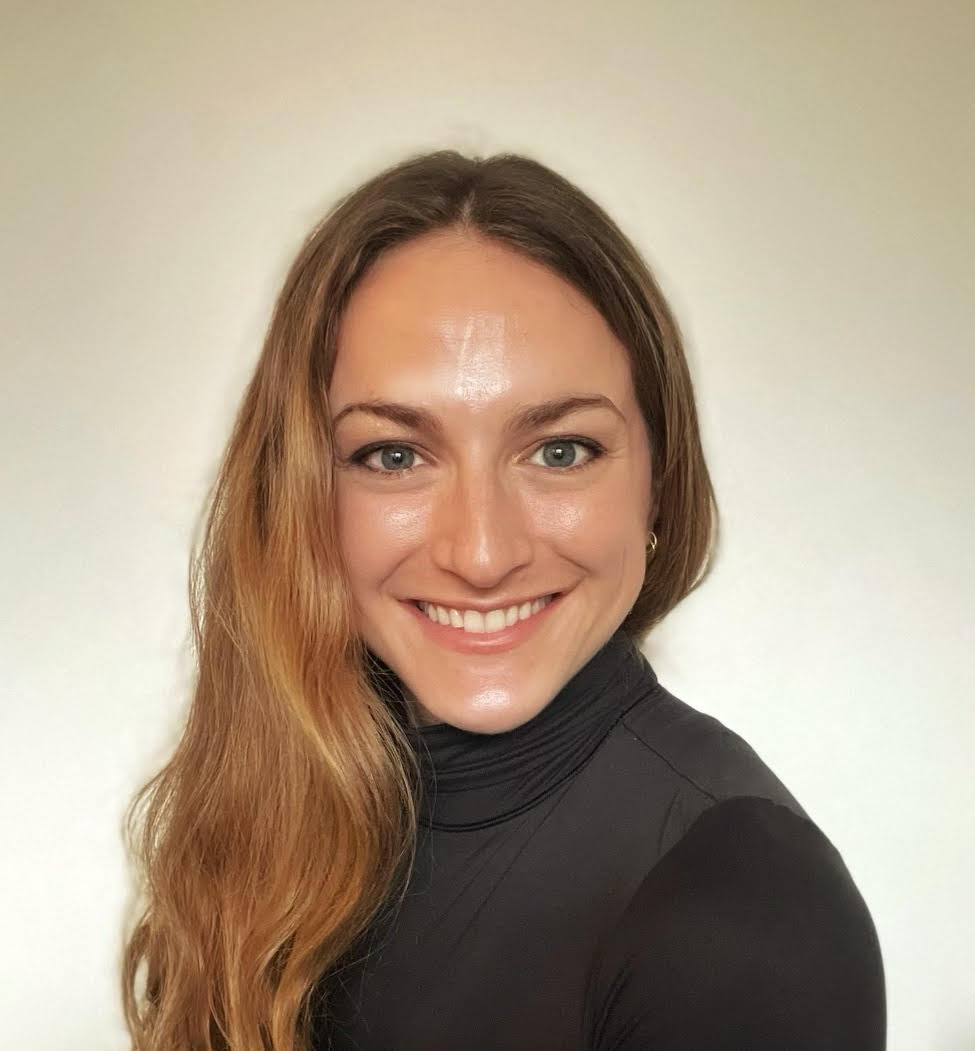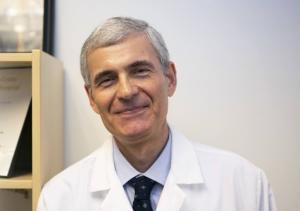Our Faculty

Michael Bamdad, MA
(GW CCAS, Speech, Language & Hearing Sciences)
Michael J. Bamdad M.A., CCC-SLP is a Speech-Language Pathologist who has worked with TBI patients and their families for over 20 years. He has been published and speaks nationally and internationally on the topics of executive functioning deficits and pragmatic disorders post TBI. He spent many years working as a civilian researcher for the United States Army, based out of the Neuroscience Center at Walter Reed Army Medical Center, Washington, D.C., where he advanced to the position of Assistant Director of the outpatient head injury clinic. He was involved in establishing the Defense and Veterans Brain Injury Center, which has a mission to serve active duty military and veterans with traumatic brain injuries. He then moved into academia full time, and is currently working in the Department of Speech, Language and Hearing Science at The George Washington University. He teaches applied neurology at the graduate level and works as the department’s Clinic Director.

John Bethea, PhD
(GW SMHS, Anatomy and Cell Biology)
Dr. John Bethea is a Professor and Chair of the Department of Anatomy and Cell Biology at The George Washington School of Medicine and Health Sciences. Bethea maintains an active, well-funded research program focused on the mechanisms and therapies for chronic neuropathic pain, mechanisms of spinal cord injury-induced immune dysfunction, and TNFR2 (tumor necrosis factor receptor-2) dependent sex differences in functional recovery and mechanisms of remyelination and neuroprotection with funding from the National Institutes of Health and Department of Defense. He also serves on numerous NIH and DoD review panels and has chaired the New Jersey Commission of Brain Injury since 2012.

Adam Ciarleglio, PhD
(GW MISPH, Biostatistics & Bioinformatics)
Dr. Adam Ciarleglio is an Assistant Professor of Biostatistics in the Department of Biostatistics and Bioinformatics. He is broadly interested in integrating functional data analysis, machine learning, and treatment regime estimation methods to address questions in public health and medical research, especially those related to mental health. He completed a postdoctoral research fellowship in the Division of Biostatistics in the Department of Child and Adolescent Psychiatry at the New York University School of Medicine in 2016. Prior to joining GWU, he was a faculty member in the Division of Mental Health Data Science at the New York State Psychiatric Institute and the Department of Biostatistics at the Mailman School of Public Health at Columbia University.

Leslie Davidson, PhD
(GW SMHS, Clinical Research & Leadership)
Dr. Leslie Davidson is an Associate Professor and the Chair of the Department of Clinical Research and Leadership. Dr. Davidson is an expert in the development and testing of cognitive outcome assessments. Her research focuses on dual task and multitask assessments to help inform return to duty with servicemembers who have sustained concussion. She is skilled in qualitative and mixed methods approaches for assessment development. She has experience collaborating with caregivers of service members following concussion, participating in large multi-center studies and analysis of concussion assessment data.

Loretta DiPietro, PhD
(GW MISPH, Exercise & Nutrition Sciences)
Dr. Loretta DiPietro has recognized that many of today's critical public health problems can be addressed, at least partly, through improved nutrition and physical activity, and has built bridges between population-based public health and the clinical and physiological domains of exercise science. An accomplished and widely published researcher with particular interest in the role of physical activity in the health of older adults, she has been awarded grants from the National Institute on Aging and the American Cancer Society, and has lectured at medical schools, public health schools, and other organizations around the world. Dr. DiPietro joined GW SPH in 2008 from Yale University School of Medicine, where she was associate professor of epidemiology and public health and a fellow at the John B. Pierce Laboratory.

N. Maritza Dowling, PhD
(GW Nursing)
Dr. N. Maritza Dowling is an associate professor and biostatistician at The George Washington University School of Nursing. She received a doctorate in quantitative methods with majors in statistics and psychometrics from the University of Wisconsin-Madison. Dr. Dowling’s research focuses on measurement issues in the longitudinal assessment of cognitive decline in older adults and the application of novel statistical approaches to model the complex interplay between risk and protective factors in Alzheimer’s disease-related brain changes and biomarkers for disease prognosis. Her research also aims to optimize cognitive outcome measures for early diagnosis and patient selection in clinical studies of Alzheimer’s disease-modifying therapies.
Leigh Frame, PhD
(GW SMHS, Clinical Research & Leadership)
Dr. Leigh Frame brings nutrition and immunity together through clinical, translational research. Her T-shaped expertise in health, wellness, science, and medicine was developed through her wide-ranging experience in biomedical research (from wet bench to clinical research) and overseeing research and education programs. Dr. Frame is the Director of the Resiliency & Well-being Center and Chief Wellness Officer of GW Medicine. Her interests include the role of the microbiome and nutrition in health, the consequences of malnutrition in obesity, vitamin D as an immune-modulatory hormone, research ethics, and social media.
Salama Freed, PhD
(GW MISPH, Health Policy and Management)
Dr. Salama Freed is an Assistant Professor in the Department of Health Policy and Management. Her research agenda focuses on improving the aging experience for older adults. In particular, Dr. Freed studies the effects of policy or care delivery disruptions on older adults’ access to care, with a focus on Medicare and long-term care. Prior to joining the School of Public Health in 2022, Dr. Freed was a health policy fellow at the National Pharmaceutical Council and Duke-Margolis Center for Health Policy and a postdoctoral researcher at the University of Pennsylvania’s Leonard Davis Institute for Health Economics. She earned her PhD in Economics at Vanderbilt University in 2018.

Lorens Helmchen, PhD
(GW MISPH, Health Policy and Management)
Dr. Lorens A. Helmchen is an Associate Professor of Health Policy and Management in the Milken Institute School of Public Health at The George Washington University. He teaches courses on health economics and predictive analytics in the School's online and residential Master of Health Administration and Master of Public Health programs. Dr. Helmchen applies microeconomic theory and econometric methods to study innovation in provider payment, health insurance benefit design, and digital health. His research has been funded by federal agencies, private foundations, device manufacturers, health insurers, and hospital systems.

Panagiotis Kassavetis, MD, PhD
Dr. Panagiotis Kassavetis's clinical work is focused on movement disorders. He treats patients with all movement disorders including tremor, parkinsonism, dystonia, myoclonus, and others. He has expertise in advanced therapies such as ultrasound and EMG-guided botulinum toxin injections. His research focuses on using advanced neurophysiological techniques to enhance the understanding of human motor control and the pathophysiology of movement disorders, with the goal of developing effective therapies.

Stephanie Kielb, PhD
(GW SMHS, Psychiatry and Behavioral Health)
Dr. Stephanie Kielb is a licensed clinical neuropsychologist who received her doctorate in Clinical Psychology from Northwestern University Feinberg School of Medicine. Dr. Kielb has expertise in providing evidence-based psychotherapy and conducting comprehensive neuropsychological evaluations with patients who have a wide range of psychiatric and medical conditions. She has a particular interest in working with individuals who have neurologic illnesses, including multiple sclerosis, epilepsy, and neurodegenerative disease. She is active in the national neuropsychology community and has served on the program committee for the APA Society for Clinical Neuropsychology and the International Neuropsychological Society.

Mikhail Kogan, MD
(GW SMHS, Geriatrics & Palliative Medicine)
Dr. Mikhail Kogan is a geriatrician with The GW Medical Faculty Associates and an associate professor of Medicine at The George Washington University School of Medicine & Health Sciences. Dr. Kogan obtained his medical degree from the Drexel University College of Medicine in Philadelphia, Pennsylvania. He completed his residency in Internal Medicine at Montefiore Medical Center in New York City and a fellowship in Geriatric Medicine at The George Washington University Medical Center.

Trudy Mallinson, PhD
(GW SMHS, Clinical Research & Leadership)
Dr. Trudy Mallinson is Associate Professor in the Department of Clinical Research and Leadership, The George Washington University, Washington DC. She is also a Senior Scientist in the Center for Healthcare Innovation and Policy Research and Director of the Advanced Metrics Lab. Her primary research interest is how better outcomes measurement can improve health care for patients and inform health care policy.

Paul Marvar, PhD
(GW SMHS, Pharmacology & Physiology)
Dr. Paul Marvar is an Associate Professor in the Department of Pharmacology and Physiology at the George Washington University's School of Medicine and Health Sciences. He also holds a secondary appointment in GWU's Department of Psychiatry and Behavioral Sciences. Dr. Marvar's current funding and research interests are in anxiety disorders and hypertension risk, with a focus on the brain neurocircuitry and neurohormonal systems involved in the autonomic control of blood pressure and immune system regulation.

Ali Moghtaderi, PhD
(GW MISPH, Health Policy)
Dr. Ali Moghtaderi is a health economist and and Associate Professor of Health Policy and Management in the Milken Institute School of Public Health at the George Washington University. His research primarily focuses on the impact of regulations, market structure, and financial incentives on physicians’ and patients’ behaviors, patient outcomes, and healthcare costs, often using causal research designs.
Zurab Nadareishvili, MD, PhD
(GW SMHS, Neurology)
Dr. Zurab Nadareishvili is a Clinical Professor of Neurology and Rehabilitation Medicine with a clinical research interest in stroke and cerebrovascular disorders. His area of research is to study the role of inflammation in pathogenesis of stroke. He is currently involved in a study of stroke biomarkers using next generation sequencing technology.

Melinda Power, ScD
(GW MISPH, Epidemiology)
Dr. Melinda C. Power is an Associate Professor of Epidemiology at the George Washington University (GWU) Milken Institute School of Public Health. Dr. Power has expertise in statistical analysis of observational data, and a commitment to improving epidemiologic methods in the study of late-life cognition and dementia. Her current research focuses on the role of environmental pollutants in the development of dementia, translation of epidemiologic research to inform clinical trial development, and projects designed to inform clinical practice and health policy around supporting people living with dementia.

Christina Prather, MD
(GW SMHS, Geriatrics & Palliative Medicine)
Dr. Christina Prather is an internist and geriatrician with the GW Medical Faculty Associates and an assistant professor of medicine at The George Washington University School of Medicine & Health Sciences. A Maryland native, she earned an engineering degree in biological resources and biomedical engineering at the University of Maryland, College Park and completed medical school in Baltimore at the University of Maryland. She completed her residency in Internal Medicine and fellowship in Geriatrics at the University of North Carolina Chapel Hill. She is a proud recipient of the James Bryan award from the University of North Carolina which is awarded to clinicians who are recognized for their compassion, clinical skills, and bedside manner.

Antonio Puente, PhD
(GW SMHS, Psychiatry)
Dr. Antonio N. Puente is a clinical neuropsychologist and assistant professor at The George Washington University School of Medicine & Health Sciences. In his current practice, Dr. Puente conducts neuropsychological evaluations of patients with psychiatric and neurological disorders (e.g., Alzheimer's disease, Parkinson's disease, epilepsy, brain tumors, TBI, ADHD) to characterize their cognitive, behavioral, and emotional functioning for diagnosis and treatment optimization. He also provides psychotherapy, and he developed a specialty in treating adult ADHD with cognitive behavioral therapy on internship in the Duke University ADHD Clinic. In addition to his clinical work, Dr. Puente has developed a program of research focused on understanding the neural basis of cognition and refinement of neuropsychological methods for improved accuracy in the prediction of behavior.

Priyanka Shrestha, PhD, RN
(GW Nursing)
Dr. Priyanka Shrestha is a tenure-track assistant professor of nursing and geriatric nursing researcher. Her program of research focuses on improving detection and management of delirium superimposed on dementia in older adults and alleviating the burden of their family care partners and supporting their health and well-being. She has been a part of multiple NIH funded research projects and has been actively involved in the dissemination of this work through several co-authored publications, national and international conference presentations.

Leah Steckler, MD
(GW SMHS, Emergency Medicine)
Dr. Leah Steckler is an Assistant Professor of Emergency Medicine at the George Washington University School of Medicine and Health Sciences. Dr. Steckler's research interests include older adult emergency care, telehealth in the emergency department setting, falls and older adults.
Emma Stapp, PhD
(GW MISPH, Epidemiology)
Dr. Emma K. Stapp is an Assistant Research Professor in the Department of Epidemiology at the George Washington University Milken Institute School of Public Health. She is a psychiatric epidemiologist by training, with her PhD from the Johns Hopkins Bloomberg School of Public Health and postdoctoral training from the National Institute of Mental Health. Much of her work has involved bipolar disorder, where she has studied how intrinsic, behavioral, and environmental factors work together to transmit and maintain mood disorders, influence recovery, and drive consequences such as medical morbidity and suicide risk. Currently Dr. Stapp is studying the intersection of affective, brain, and bodily health across the life course with the goal of preventing morbidity and promoting healthy neuropsychiatric aging.

Margaret Ulfers, PhD
(GW MISPH, Epidemiology)
Dr. Margaret Ulfers completed her PhD in epidemiology here at GWU through the Columbia College of Arts and Science and the Department of Epidemiology and Biostatistics in 2008. She came to epidemiology and academia somewhat "later in life" and her career path has not been traditional. Her interests broadly include epidemiologic methods and study design. Dr. Ulfers teaches many courses including core principles of epidemiology and study design, and mentors many MPH students as they complete their CEs.

Alison Warren, PhD
(GW SMHS, Clinical Research & Leadership)
Dr. Alison Warren holds a Clinical Doctorate in Acupuncture and Oriental Medicine. Dr. Warren received her Doctorate in Acupuncture and Oriental Medicine from Bastyr University in Washington, specializing in orthopedics, pain management, and oncology. During her doctorate, she worked in pain management clinics and oncology hospitals focusing on integrative care. Additionally, Dr. Warren completed advanced training from Memorial Sloan Kettering in “Acupuncture for the Cancer Patient”. She received her Masters of Science in Traditional Chinese Medicine in Chicago from Pacific College of Oriental Medicine after receiving her Bachelors in Premed and Psychology at Kent State University. During her training in Traditional Chinese Medicine (TCM), she also traveled to China to train at prestigious hospitals in both Shanghai and Chengdu.

Nicola Wolfe, PhD
(GW CCAS, Psychological and Brain Sciences)
Dr. Nicola Wolfe is a neuropsychologist whose research is on aging and Alzheimer's disease. She earned her doctorate from Harvard University in Clinical Psychopharmacology. She teaches Neuroscience and Psychopharmacology courses with University of California, Berkeley – extension and George Washington University. She has also taught at Harvard University, University of California Berkeley, University of San Francisco, California School of Professional Psychology (CSPP) Alliant University, Palo Alto University, and Saybrook University. She specializes in dynamic, visually rich, culturally sensitive instruction in this rapidly changing field. Dr. Wolfe is coauthor of the Cross Cultural Cognitive Exam (CCCE) ©, validated during a Fulbright Scholarship in Japan which has been translated in six languages. Her research includes cross cultural neuropsychology of dementia, neuroimaging in Alzheimer’s disease, and cognition in healthy aging.

Lauren Woodie, PhD
(GW SMHS, Pharmacology and Physiology)
Dr. Lauren Woodie is an Assistant Professor of Neuroscience in the Department of Pharmacology and Physiology at the George Washington School of Medicine and Health Sciences. Dr. Woodie's research program focuses on the neurobiology of circadian rhythms and how mistimed eating impacts mental and metabolic health. Her work seeks to identify neuroanatomical targets for chrono-therapies alleviating the burden of shift-work and jet lag on human health.





